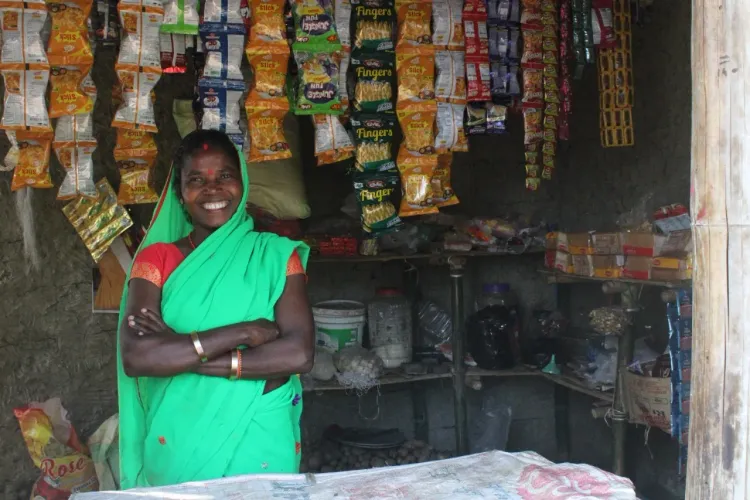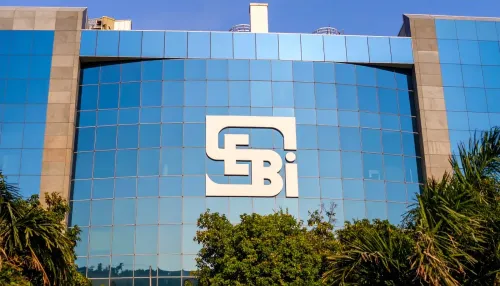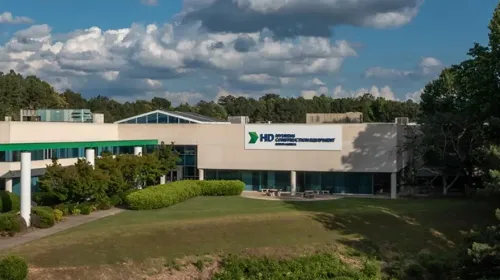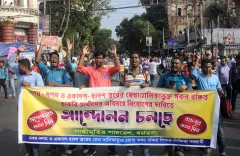PMMY Cultivating a Network of Empowered Women Entrepreneurs in India

Synopsis
Key Takeaways
- PMMY empowers women through collateral-free loans.
- Women represent 68% of Mudra beneficiaries.
- The initiative enhances women's bargaining power.
- Loan disbursement for women shows a CAGR of 13%.
- Focus on transitioning borrowers to higher-value loans.
New Delhi, April 14 (NationPress) The Pradhan Mantri MUDRA Yojana (PMMY) is cultivating a network of empowered and economically active women in India, as highlighted by an expert.
According to a media report, Aditya Sinha, OSD, Research at the Economic Advisory Council to the Prime Minister, elaborated on how PMMY is fostering women-led growth across the nation.
This initiative facilitates access to collateral-free credit for micro and nano enterprises.
“Beyond being a financing scheme, PMMY redefines the social contract between the state and its citizens by recognizing the underprivileged, particularly women, as inherent entrepreneurs rather than mere recipients of welfare,” stated Sinha.
Historical institutional, cultural, and informational disparities have previously hindered the long-term growth potential of women-run businesses.
However, PMMY removes collateral requirements, minimizes transaction costs, and decentralizes credit access through non-banking financial institutions and microfinance intermediaries,” Sinha explained.
Women are now transitioning from unpaid household labor or seasonal wage work to actively establishing micro-enterprises such as tailoring shops, beauty salons, food stalls, agri-processing units, and retail outlets.
Sinha referred to this transition as “profoundly social,” enhancing women's bargaining power within households and their control over resources.
“PMMY goes beyond merely creating micro-entrepreneurs; it lays the groundwork for a broader ecosystem of empowered, economically active women, whose contributions promote inclusive and sustainable development,” Sinha remarked.
Initiated in 2015, PMMY is a government-supported scheme providing small loans (up to Rs 10 lakh) to micro and small enterprises.
The scheme categorizes loans as Shishu (up to Rs 50,000), Kishore (Rs 50,001 to Rs 5 lakh), and Tarun (Rs 5,00,001 to Rs 10 lakh).
Recent data indicates that women represent nearly 68 percent of all Mudra beneficiaries under PMMY.
The CAGR of per-woman loan disbursement under PMMY has been recorded at 13 percent from FY16 to FY25, reaching Rs 62,679. Concurrently, women's incremental savings (deposits) have seen a CAGR of 14 percent. This suggests not only increased credit uptake but also enhanced financial behavior, Sinha pointed out.
In light of these results, the expert proposed that PMMY now concentrate on facilitating the next growth phase, which includes assisting eligible women borrowers in transitioning from smaller loans (Shishu/Kishore) to higher-value Tarun loans, thereby promoting business expansion and formalization.
He also advocated for the monitoring of gender-disaggregated outcomes via a real-time dashboard and incentivizing states with robust women-led MSME ecosystems.









